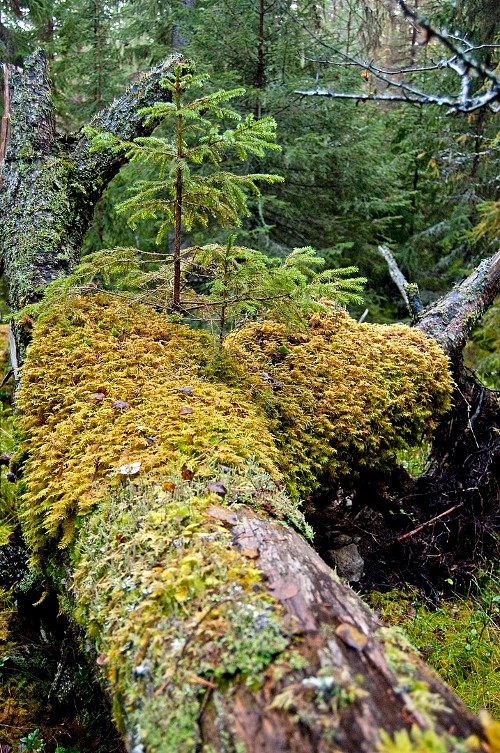


 9:11:33
9:11:33  2023-04-11
2023-04-11  1292
1292

Look at Nature, everything is in balance. Now look at human society as a whole – a grand system of imbalance. But how did Nature come to develop this complex web of systems to reach the perfect balance? One of the secrets to this is using everything you can. There is a famous expression which says, “Nothing goes to waste in a forest.” Viewing this statement from a larger lens, it can be said that “Nothing ever goes to waste in Nature”, and this is only possible due to a process called ecological recycling.
A perfectly functioning ecosystem is created only after thousands of years of development and this happens through the process of ecological succession, which is the gradual change in the species composition of a given area. Only after a continuous chain of such successions, a perfectly balanced ecosystem with a perfectly harmonious community of living organisms is attained.
In order to keep this system going on and on for millions of years, Nature needs a recycling system – this is the nutrient cycle (ecological recycling). The movement of mineral nutrients in an organism is cyclic, and the most common mineral cycles include the oxygen, carbon, water and nitrogen cycles, among others. In the context of nutrition, a mineral is a chemical element required as an essential nutrient for organisms to perform basic functions necessary for life. So these mineral cycles continually recycle along with other nutrients to produce nutrition and energy.
Ecosystems take the help of biodiversity to recycle natural substances like mineral nutrients, and thus are capable of recycling 100% of the waste material, i.e ‘complete recycling’. Most of us are aware of how food chains work. Autotrophs such as plants produce their own food and herbivores eat them for nutrition, who are in turn eaten by carnivores. Yes, it does sound like those biology lessons back from school but this is where it gets interesting. When spoken about the carbon cycle, the context is really important because while being taught the fundamentals of life science in school, we were told how carbon dioxide or CO2 is fixed through the process of photosynthesis.
While it is true that an estimated 4 x 103 kg of carbon is fixed in the biosphere annually through photosynthesis, but that’s not the whole story. If we look at the total quantity of global carbon, it is found that about 71% of the carbon is dissolved in oceans. This oceanic reservoir regulates the amount of CO2 in our atmosphere.
Apart from carbon, oxygen and hydrogen, nitrogen is the most prevalent element in a living organism. But what happens when that nitrogen has to be recycled after these organisms die? In the nitrogen cycle, bacteria – employees of the company called ‘Nature’ – are professionals in this matter. The organic nitrogen inside dead plants and animals is turned into ammonia through a process called ammonification, wherein the ammonia is oxidised by the bacteria Nitrosomonas, Nitrococcus and Nitrobacter. (Surely these bacteria deserve employees of the month awards!)
Reality Of Islam |
|

Labor short

A new ultra

Batteries p
 9:3:43
9:3:43
 2018-11-05
2018-11-05
10 benefits of Marriage in Islam
 7:5:22
7:5:22
 2019-04-08
2019-04-08
benefits of reciting surat yunus, hud &
 9:45:7
9:45:7
 2018-12-24
2018-12-24
advantages & disadvantages of divorce
 11:35:12
11:35:12
 2018-06-10
2018-06-10
 6:0:51
6:0:51
 2018-10-16
2018-10-16
 12:47:1
12:47:1
 2022-12-20
2022-12-20
 8:30:23
8:30:23
 2022-03-03
2022-03-03
 7:32:24
7:32:24
 2022-02-14
2022-02-14
 9:42:16
9:42:16
 2022-10-19
2022-10-19
 3:43:50
3:43:50
 2022-11-05
2022-11-05
 5:57:34
5:57:34
 2023-03-18
2023-03-18
 6:28:21
6:28:21
 2022-12-20
2022-12-20
 5:41:46
5:41:46
 2023-03-18
2023-03-18
| LATEST |